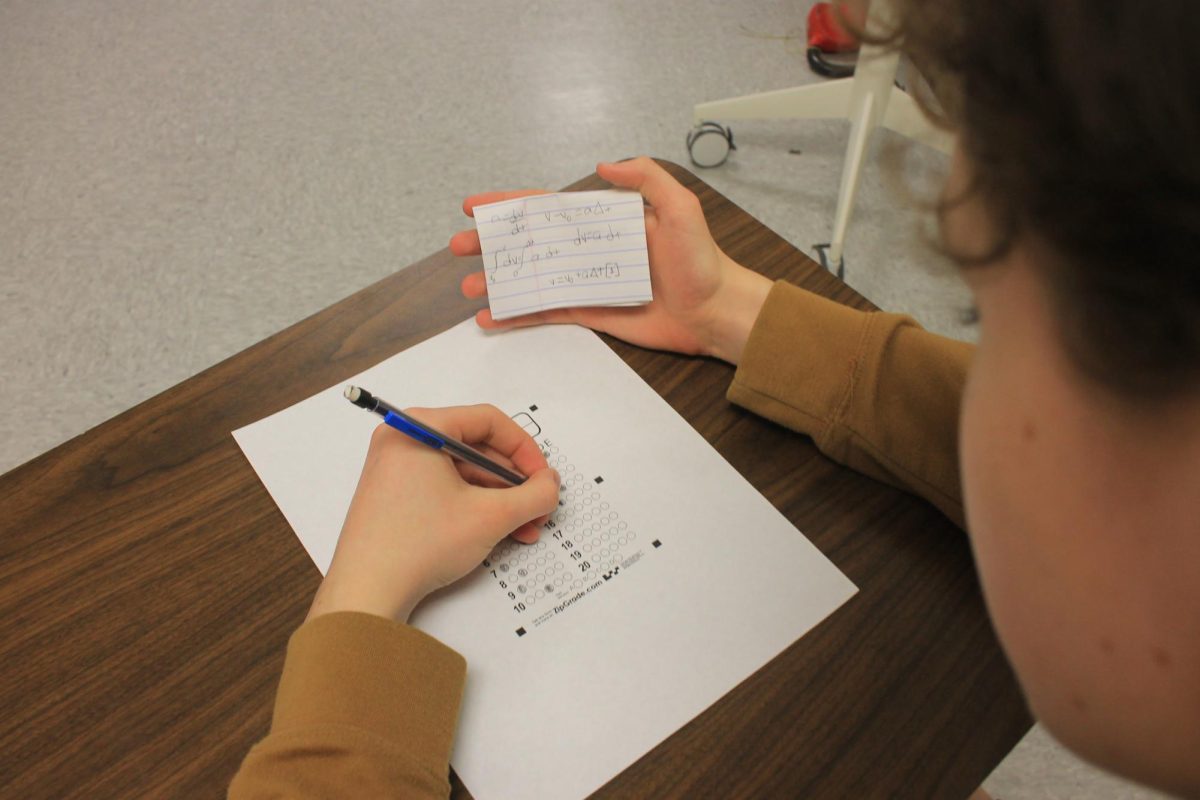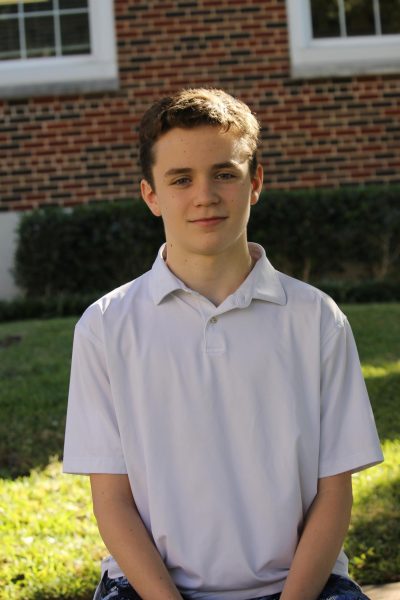Towards the end of February, a student reported a group of TAG kids memorizing and sharing answers with each other across a variety of classes. Although the administrators debated what punishment should be given for this dishonesty, in the end, none was given. This is only a part of the cheating that has become pervasive at HP.
Now, teachers have become lookouts, assistant principals roam the halls and peek into classrooms, where it has become impossible for teachers to know if students are being academically honest.
“You have your typical way of cheating, like trying to have your phone out or something like that. I catch those pretty often, and that’s why we take phones away,” human geography teacher Jedidiah Eby said. “Or if you have a photo on your Apple Watch, they could be looking at a little cheat sheet, stuff like that.”
In recent years, AI has become an integral part of the problem. It has become common for teachers to notice the robotic, inhuman feel of an an all too perfect essay. When students are assigned a research paper, they no longer turn to research. Instead, they turn to AI writers, looking to minimize their workload.
“Whether it be Chat GPT or the 9,000 other AI tools that are out there, kids don’t think teachers notice and if you do research on it, you can kind of see that there’s a certain flow,” assistant principal Troy Gray said “It’s pretty obvious when kids haven’t written very well before and then all of a sudden they turn in a perfect paper.”
The issue is more common than ever, stretching from freshmen to seniors through all classes and subjects.
“It’s really just a game,” Gray said. “I’ve seen it in English. I’ve seen it in math. I’ve seen it in social studies. I’ve seen it in science. I’ve seen it in all the electives.”
Every time a ChatGPT prompt is seen being made, a phone found during a test, or answers are heard being shared, grades begin to plummet. According to the school’s student handbook, the Kiltie, anybody found to be cheating will have their grade on that assignment turned to a zero.
“It affects GPA because if you get a zero on a test, you’re almost guaranteed to fail the six week marking period,” Gray said. “Usually in six weeks, you usually have two tests, or nine weeks usually have two to three tests and a nine week period. And if you get a zero for a major grade, it’s almost impossible to make up.”
It’s not just GPA and grades that are affected when caught, it’s the trust that is ultimately lost with the teacher.
“If you’re cheating your freshman year, sophomore, or whatever, and it comes time to get a recommendation for National Honor Society, or call recommendation, nope,” Eby said “For summer programs, no. The trust is gone.”
To address the problem of cheating, along with the Kiltie standards against plagiarism and use of electronics and cheat sheets, the school has formed the Honor Council to help combat the issues between the lines.
“The purpose of the honor council is to discourage cheating and to promise as much transparency as possible throughout the entire process of dealing with academic dishonesty,” sophomore Honor Council member Tristan Sun said.
Though the Honor Council is already a step in the right direction, there are plans in the works to do more to fight the issue.
“I’m hearing that along with our honor council, next year we’re gonna have more of an honor code going into the school,” Gray said. “I think it’ll be some kind of statement that you have to either write out or sign off on before you take an assessment next year. We’re still kind of fine tuning that a little bit we’ve been working with Dr. Hunt has been working with the student council to get that going.”
These codes and rules are not just to prevent cheating so that next time cheating is caught, whether it’s a group of TAG kids exchanging answers or an essay crafted by ChatGPT, punishment is dealt with a fair and swift nature. To ensure that there will be agreed upon codes that make grading more fair and discourage cheating from happening in the first place.
“I think that we all should aspire to be the most trustworthy and honest version of ourselves that is possible,” Sun said. “By having this kind of organization, which just promotes honesty and being truthful, it’s just good for the entire school environment.”




